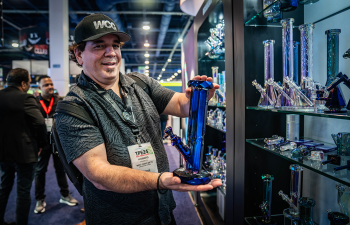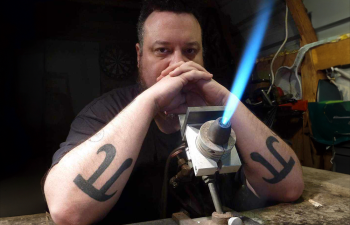The retail industry is facing a distressing escalation in store crimes, and small smoke shop retailers are not exempt from this alarming trend. From petty shoplifting to large-scale theft, shop owners are grappling with the consequences of such criminal activities. Economic uncertainties, inflation, and rising borrowing costs have contributed to the need and opportunity for retail crime, affecting businesses both big and small.
The Growing Menace of Shoplifting
Shoplifting has reached concerning levels, plaguing the retail industry and causing substantial losses to businesses. Smoke shops, in particular, have become targets for shoplifters, with both necessities and high-value products falling victim to theft. This issue poses a significant challenge for smoke shop retailers, affecting product availability, customer experience, and the safety of employees and shoppers.
The Link between Economic Factors and Shoplifting
Economic fears, exacerbated by inflation and rising costs, have created the perfect environment for shoplifting to thrive. Desperate individuals, struggling to cope with job losses and financial hardships, may resort to theft as a means of obtaining basic necessities they can no longer afford. Additionally, organized retail crime has become a significant concern, where opportunistic groups target specific items for resale, further impacting smoke shop retailers’ profits.
The Toll on Small Businesses
Smoke shop retailers are particularly vulnerable to shoplifting and its consequences. Loss of merchandise due to theft directly affects their bottom line, making it challenging to maintain profitability and sustainability. As economic distress grows, it becomes imperative for smoke shop owners to address the issue proactively to protect their businesses.
Strategies for Theft Prevention
To combat shoplifting effectively, smoke shop retailers can adopt several preventive measures:
- Enhance Security Measures: Invest in high-quality surveillance cameras strategically placed throughout the store to deter potential shoplifters and aid in identifying culprits.
- Educate Staff: Train employees to recognize signs of shoplifting and implement customer service techniques that discourage criminal behavior.
- Secure High-Value Items: Keep valuable smoking products locked behind counters or in display cases, requiring assistance for customer access.
- Community Collaboration: Forge strong relationships with local law enforcement and neighboring businesses to create a united front against retail crime.
- Promote Vigilance: Encourage staff to be vigilant and proactive in monitoring customer behavior without making them feel uncomfortable.
- Implement Security Tags: Consider using security tags on high-value smoking products to dissuade potential thieves.
Through enhanced security measures, staff training, and community collaboration, smoke shop retailers can create a safer shopping environment for their customers, protect their profits, and strengthen their position in the retail market.












